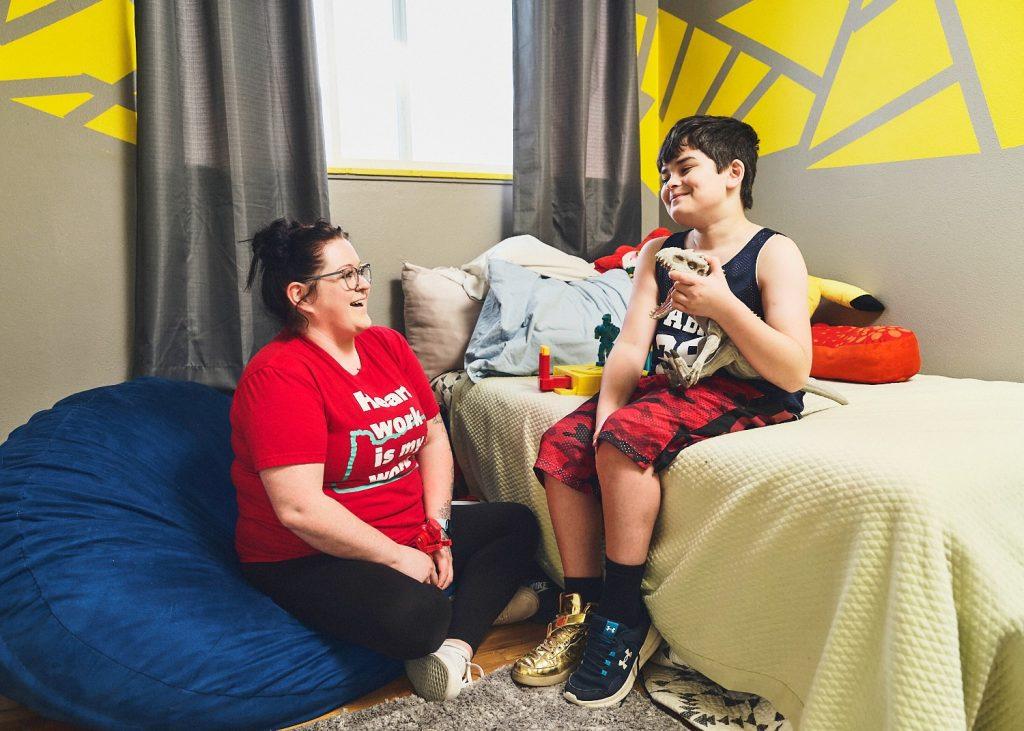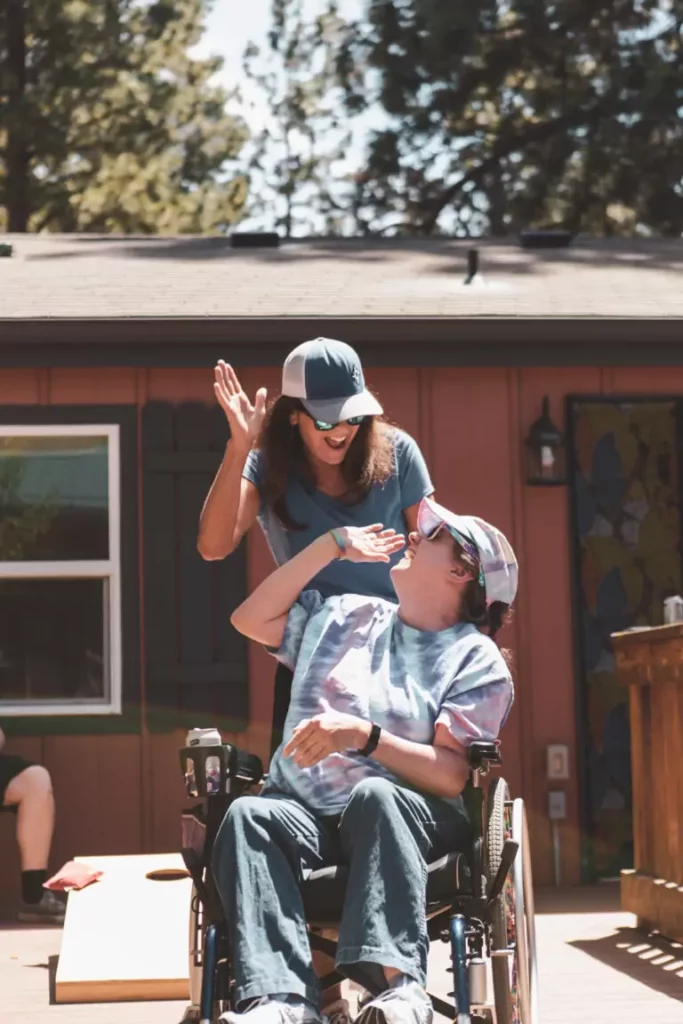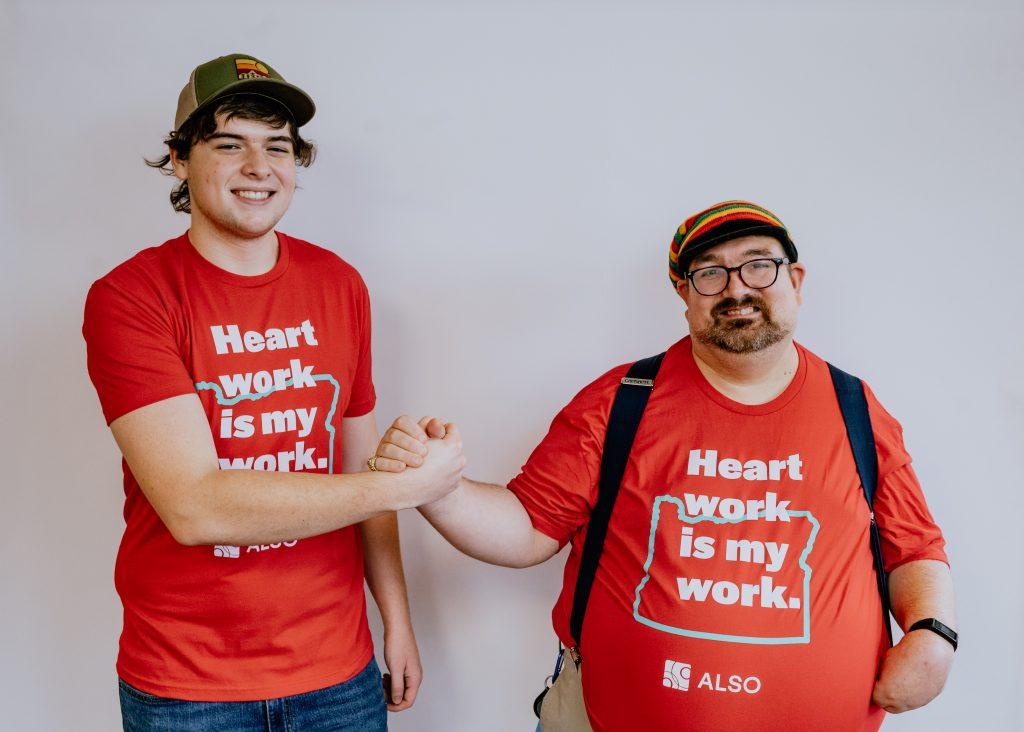Explore the ALSO Children’s Homes Wishlist and help fill the season with joy for the children supported by ALSO.
Explore the ALSO Children’s Homes Wishlist and help fill the season with joy for the children supported by ALSO.

Do you have a loved one with an intellectual or developmental disability? If so, you could be one of their many caregivers. Whether you’re a family member, friend, or a favorite teacher, you know the importance of your involvement in this person’s life.
In this blog, the Direct Support Professionals (DSPs) at ALSO discuss how caregivers can provide the best possible guidance and assistance to the person they support. It’s not just about helping out with daily tasks, but about positively impacting their hopes, dreams, and goals for the future.

The word “caregiver” can be a bit of a misnomer. It’s true that caregivers assist with all kinds of daily activities, such as bathing and meal preparation. Although these tasks are indeed important, let’s talk further about the many nuances of the caregiver’s role.
Caregivers are people who provide care to other people who need it. They can be classified as informal caregivers, such as a friendly neighbor or relative caregiver who drives someone to health care appointments occasionally. These can be paid caregivers as well, doing virtually the same kinds of tasks completed by informal caregivers.
The tasks that caregivers perform can be quite variable. It depends on the needs and abilities of the individual. Experienced caregivers know how to ‘walk a tightrope’ in giving the person they support the assistance that they need, but also, the independence that they crave and deserve. Let’s take a look at these few examples below of providing assistance, yet encouraging independence.
The way that caregivers (formal and informal) provide the best possible support to those they care for is to focus on the word, ‘support.’ It doesn’t necessarily mean ‘doing for’ or ‘taking care of.’ It means helping only when needed…and providing encouragement and confidence-building along the way.(2)
The direct support professionals (DSPs) at ALSO are extremely skilled at person-centered care. These are supportive services that acknowledge the rights of all persons, regardless of their disability, to make decisions about their own lives. Whether an unpaid caregiver, a human services professional, or a fellow student, adoption of a person-centered philosophy(3) provides the best outcome for independence.

“When you are a caregiver, you know that every day you will touch a life, and a life will touch yours.”
Caregivers have a profoundly positive impact on those that they support. Often, a primary caregiver is an absolute lifeline for the person they support. In addition to the services that we’ve already discussed, they are often responsible for:
As rewarding as family caregiving can be, it comes with its share of challenges. By day, you may be getting your loved one who may have a physical disability in and out of bed, then shuttling them to school or other activities. You may also be responsible for other kids. At night, you’re pouring over detailed information and eligibility requirements on how to get your child involved in community care programs. By the time you get to bed, you’re exhausted.
All of these stressors can put caregivers at risk for chronic illness or other health issues. Watch out for these signs of caregiver stress.(4)
Remember, you can’t take care of others unless you take care of yourself. We encourage you to explore options for support groups, respite services, or individual counseling.
ADDITIONAL RESOURCE: Oregon Department of Human Services Family Caregiver Support Program.(5)

The DSPs, specialists, managers, and leadership teams are all here to help you navigate the complicated (yet rewarding) world of being a caregiver for loved ones with intellectual and developmental disabilities. Check out our blog post on how to get disability support services:
Cutting Through the Confusion: How to Get Disability Support Services in Oregon
Whether you need support on a limited basis, (a few hours a week), temporary respite care, or more (placement services), we have a wealth of experience and practical tips on getting the support you and your loved one with disabilities need.
Please call us so we can tell you more about our available services at 503-489-6565.
We would love to hear from you!
Sources:
1. Family Doctor Editorial Staff. Caring for a person who has intellectual or developmental disabilities. September 21, 2022. Family Doctor Blog. Accessed November 15, 2024. https://familydoctor.org/caring-for-a-person-who-has-intellectual-or-developmental-disabilities/amp/
2. Special Olympics. Parenting a child with a disability. Special Olympics blog. Accessed November 15th, 2024. https://www.specialolympics.org/stories/impact/parenting-a-child-with-an-intellectual-disability
3. Roehl, A. An introduction to person centered thinking: making a difference now. University of Minnesota Institute on Community Integration. https://www.dhs.state.mn.us/main/groups/county_access/documents/pub/dhs16_191036.pdf
4. Family Doctor Editorial Staff. Caring for a person who has intellectual or developmental disabilities. September 21, 2022. Family Doctor Blog. Accessed November 15, 2024. https://familydoctor.org/caring-for-a-person-who-has-intellectual-or-developmental-disabilities/amp/
5. Oregon Department of Human Services. Family Caregiver Support Program. Homepage. Accessed November 20, 2024. https://www.oregon.gov/odhs/providers-partners/community-services-supports/Pages/family-caregiver-program.aspx
Source for quote: Pinterest. Accessed November 20, 2024. https://ca.pinterest.com/pin/571183165213260829/

Sign up for our newsletter to get our latest news, content, and job opportunities.
Help us ensure that everyone has the same opportunities in their home, workplace and community. Let’s make dreams!
